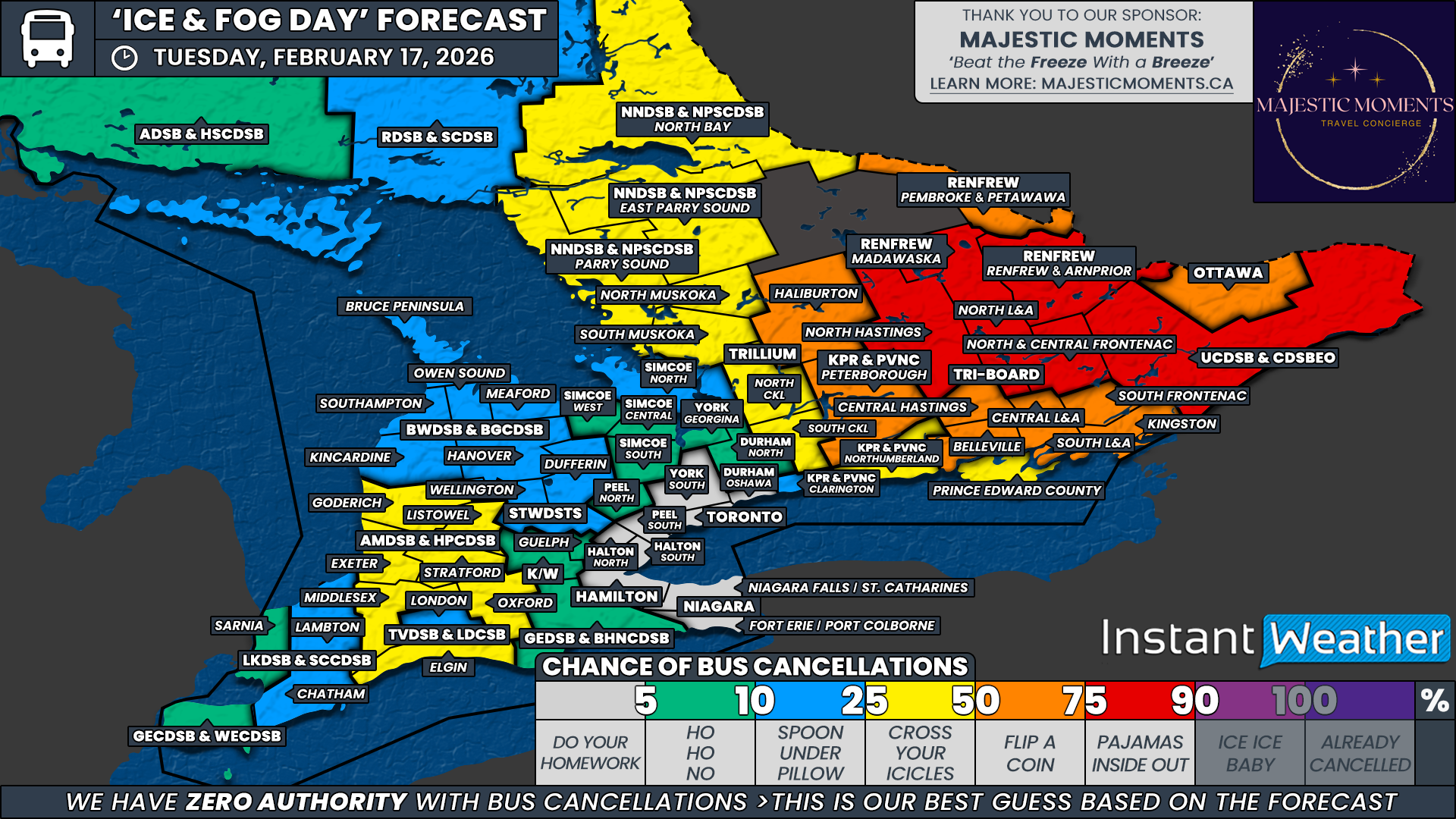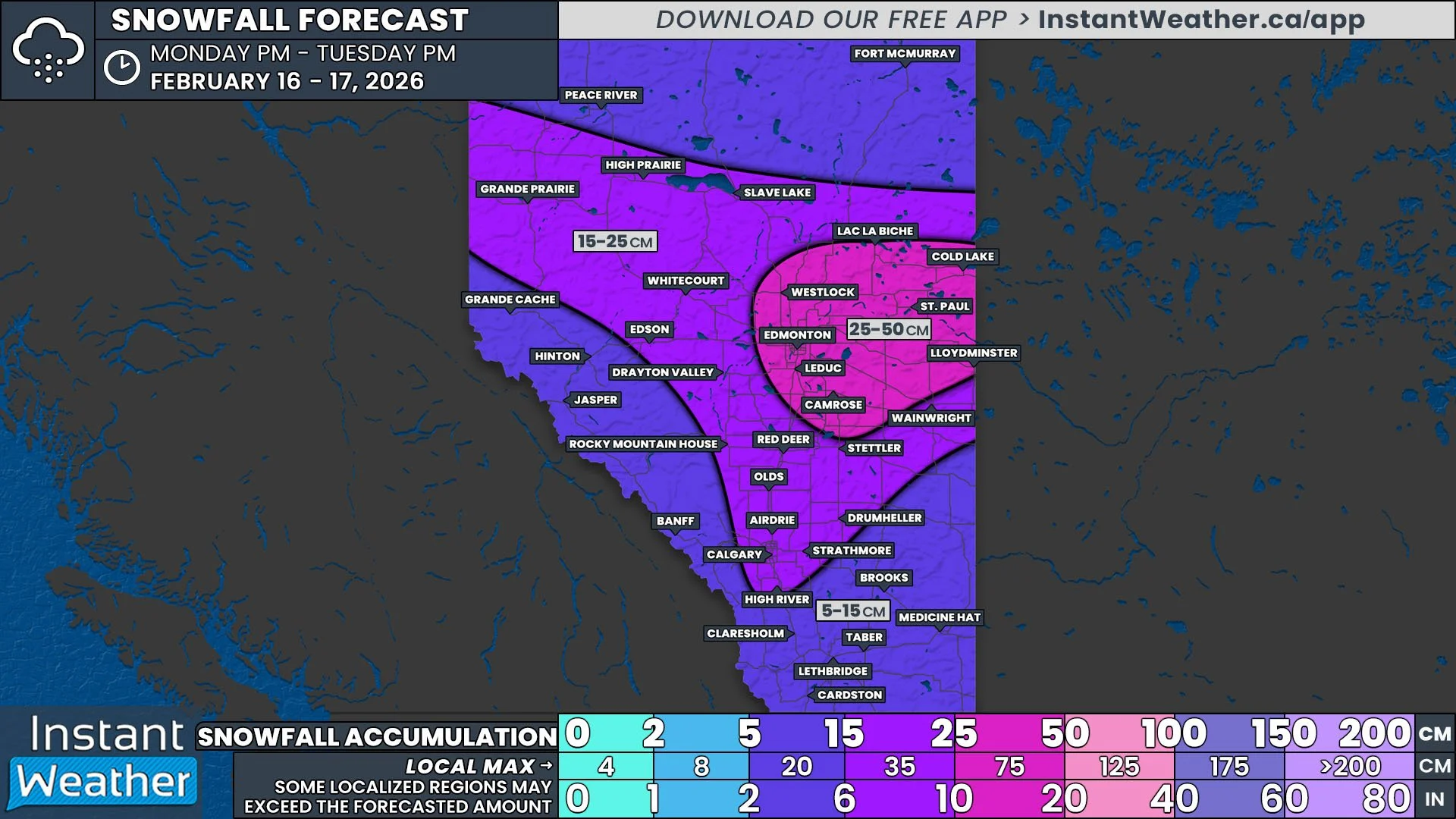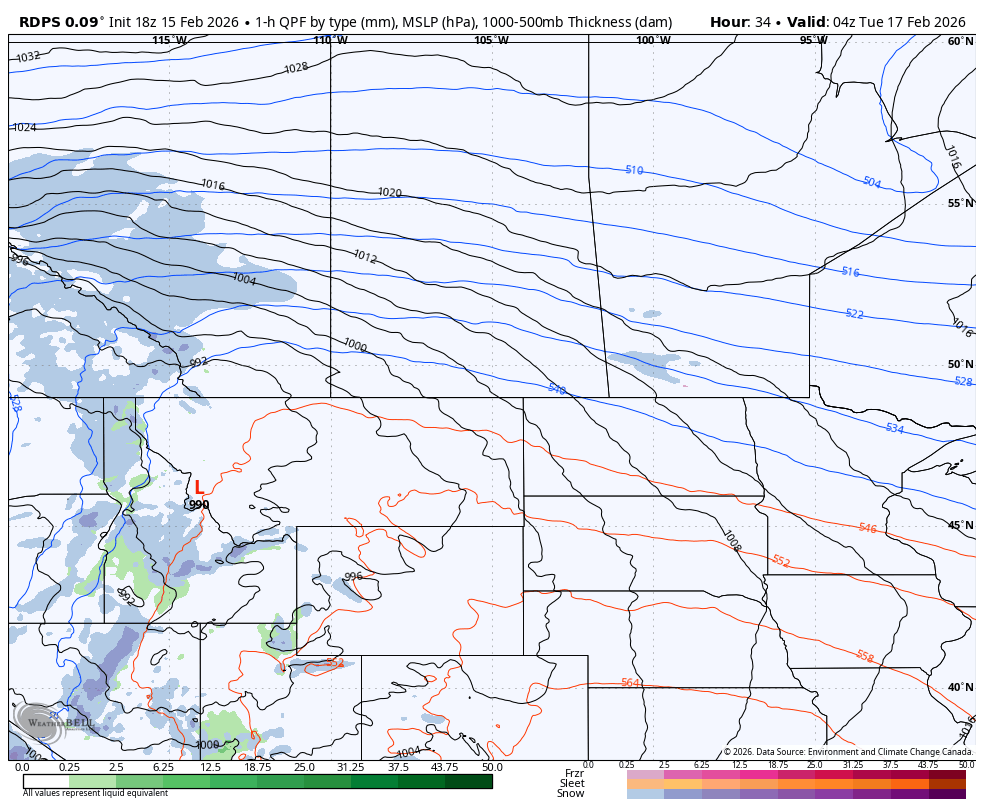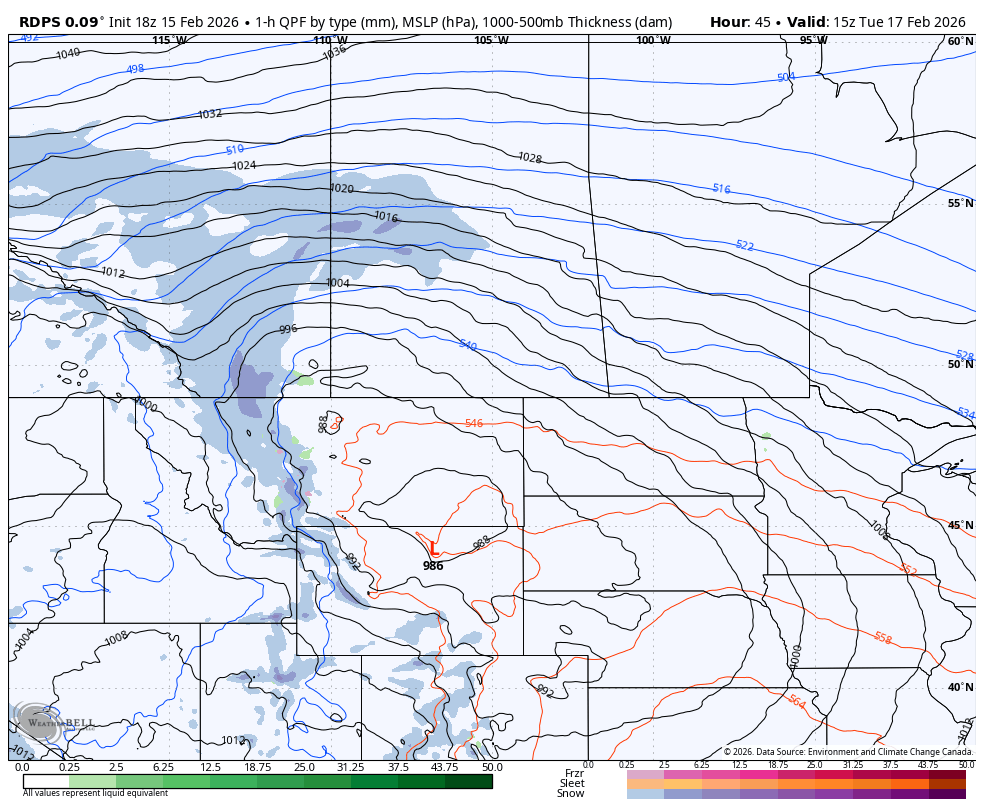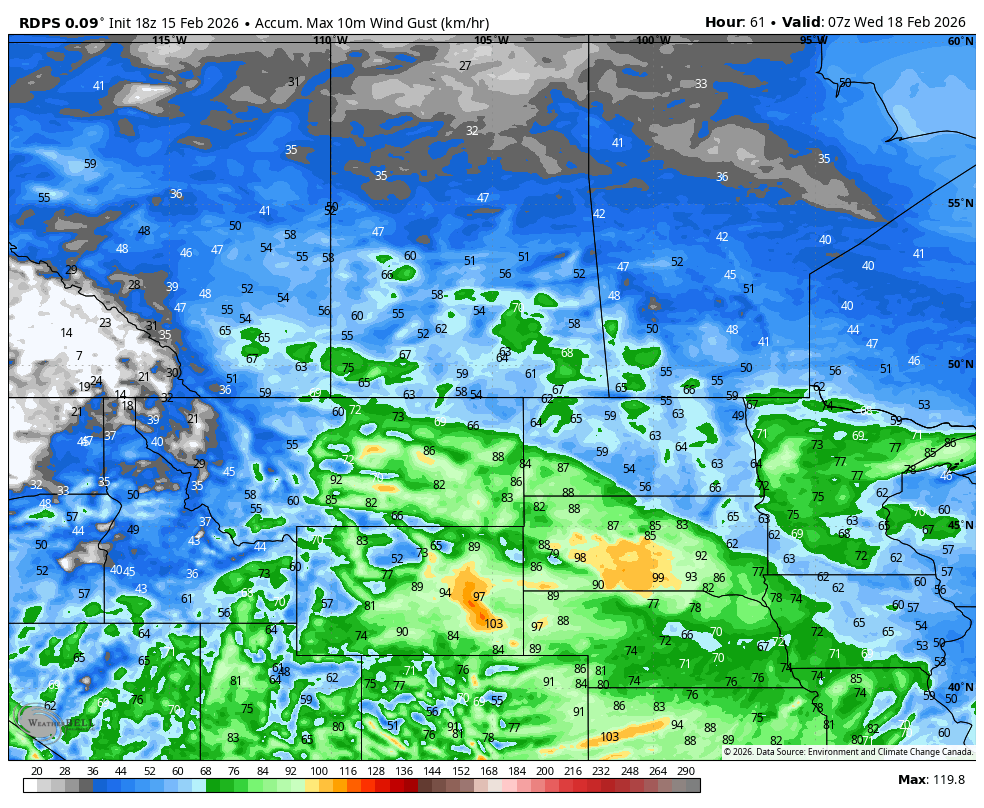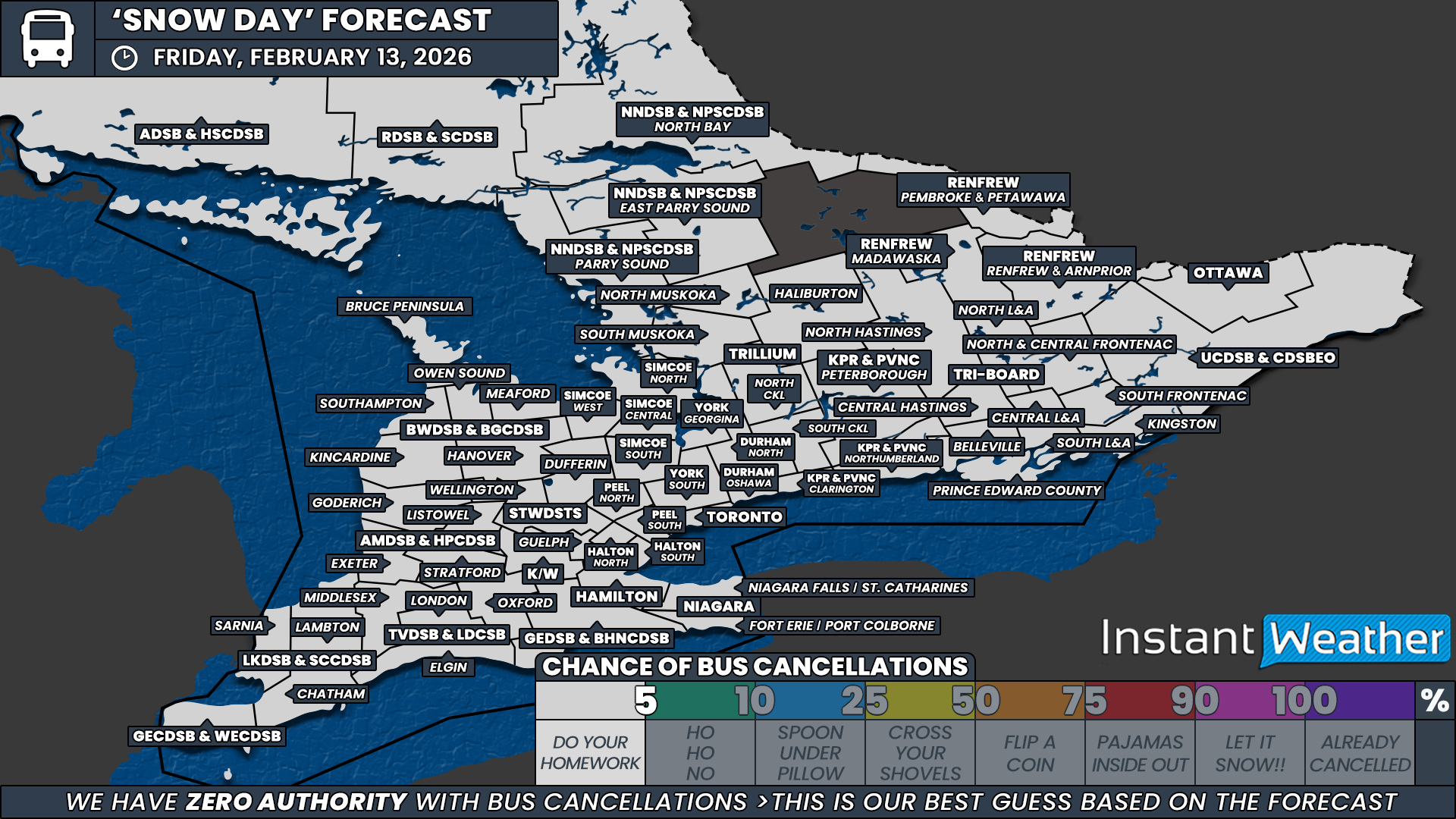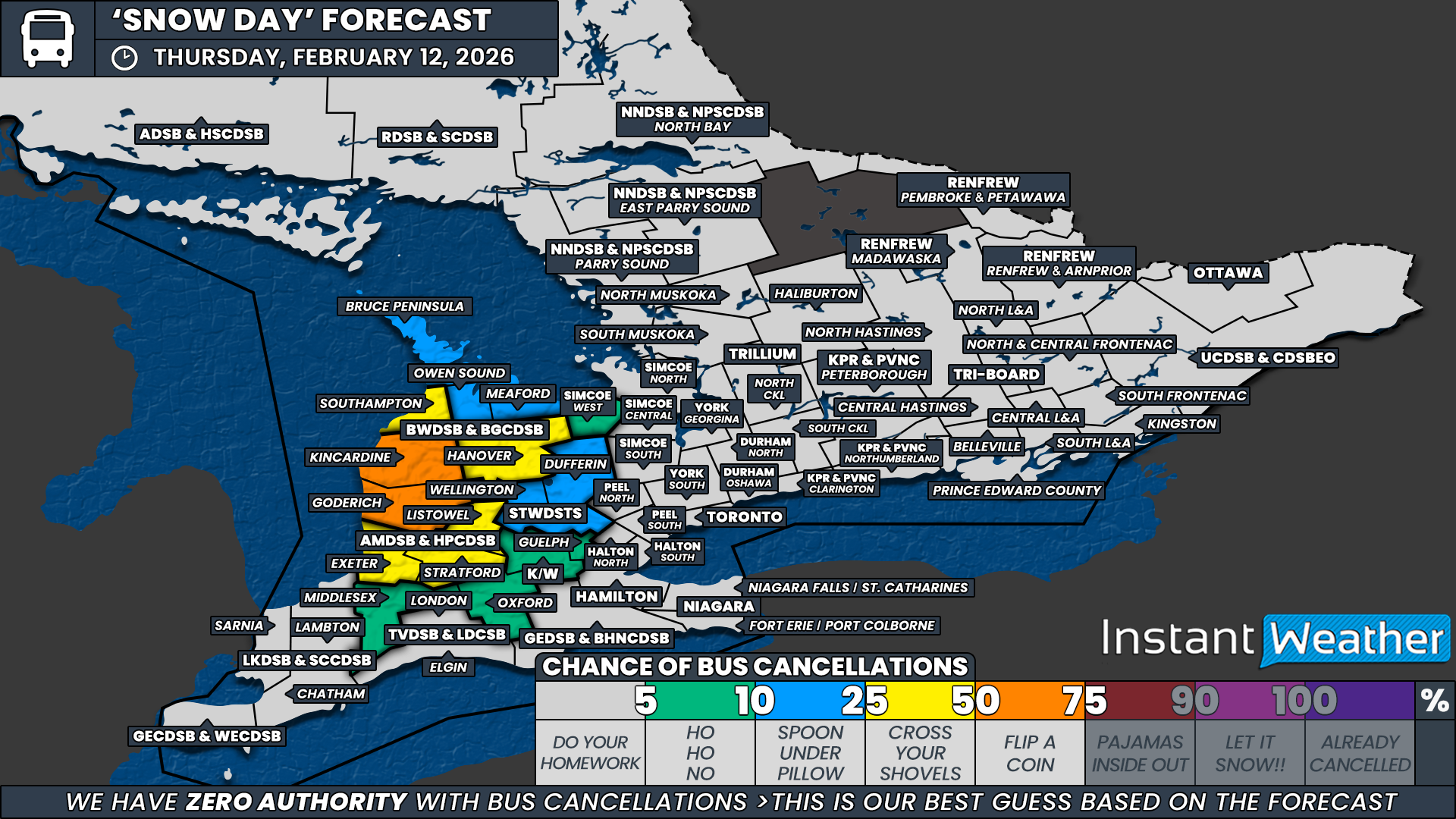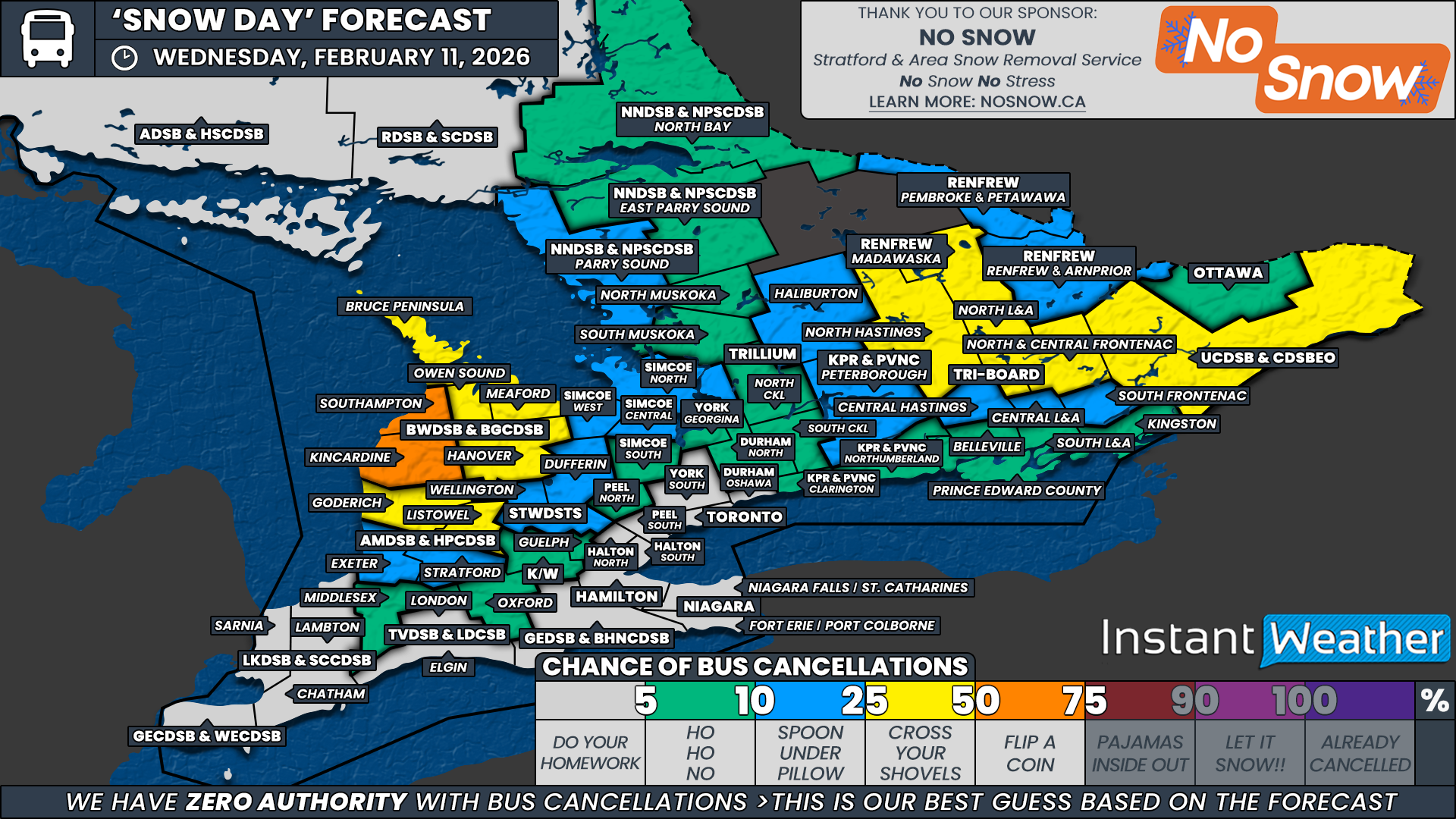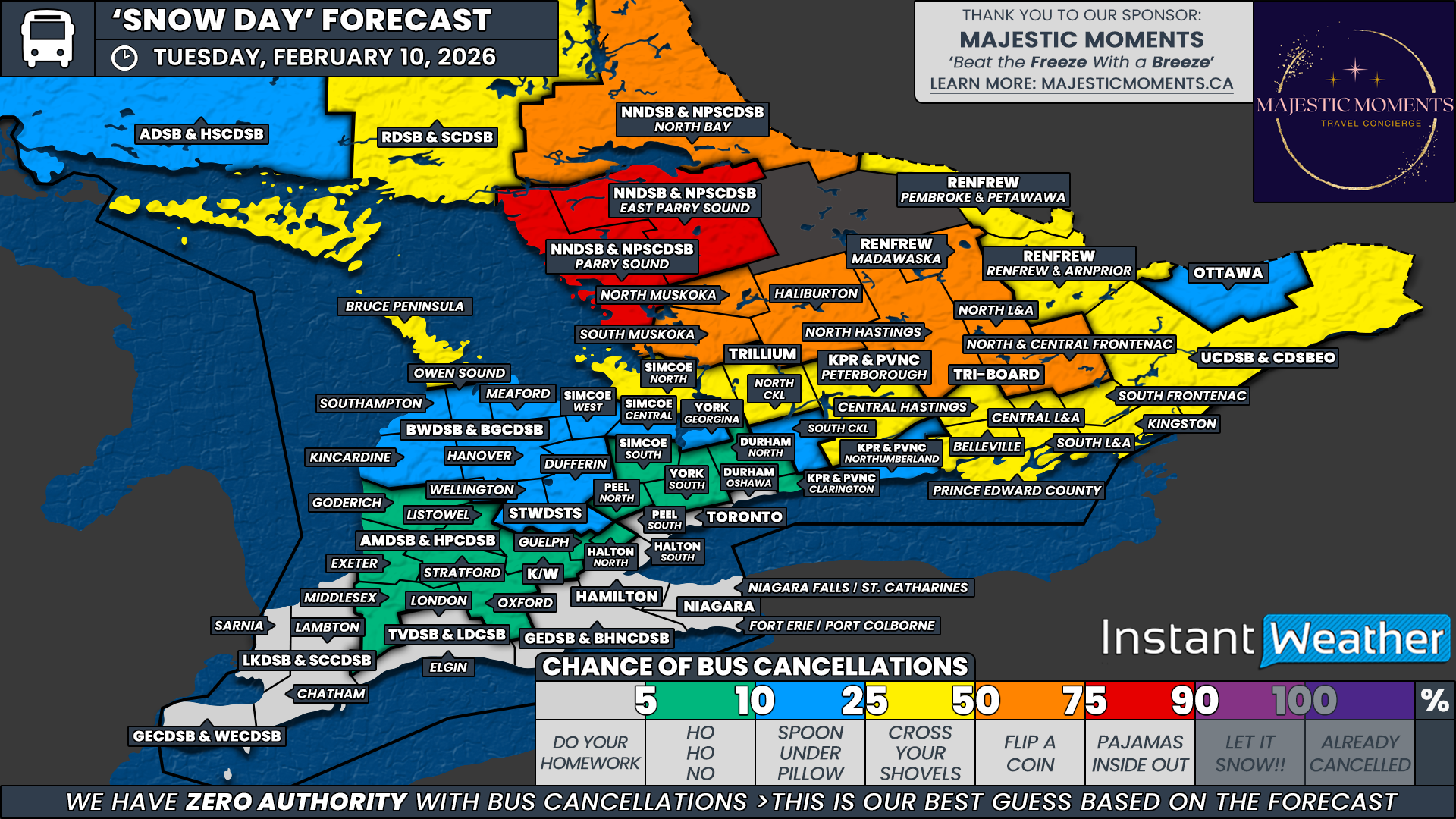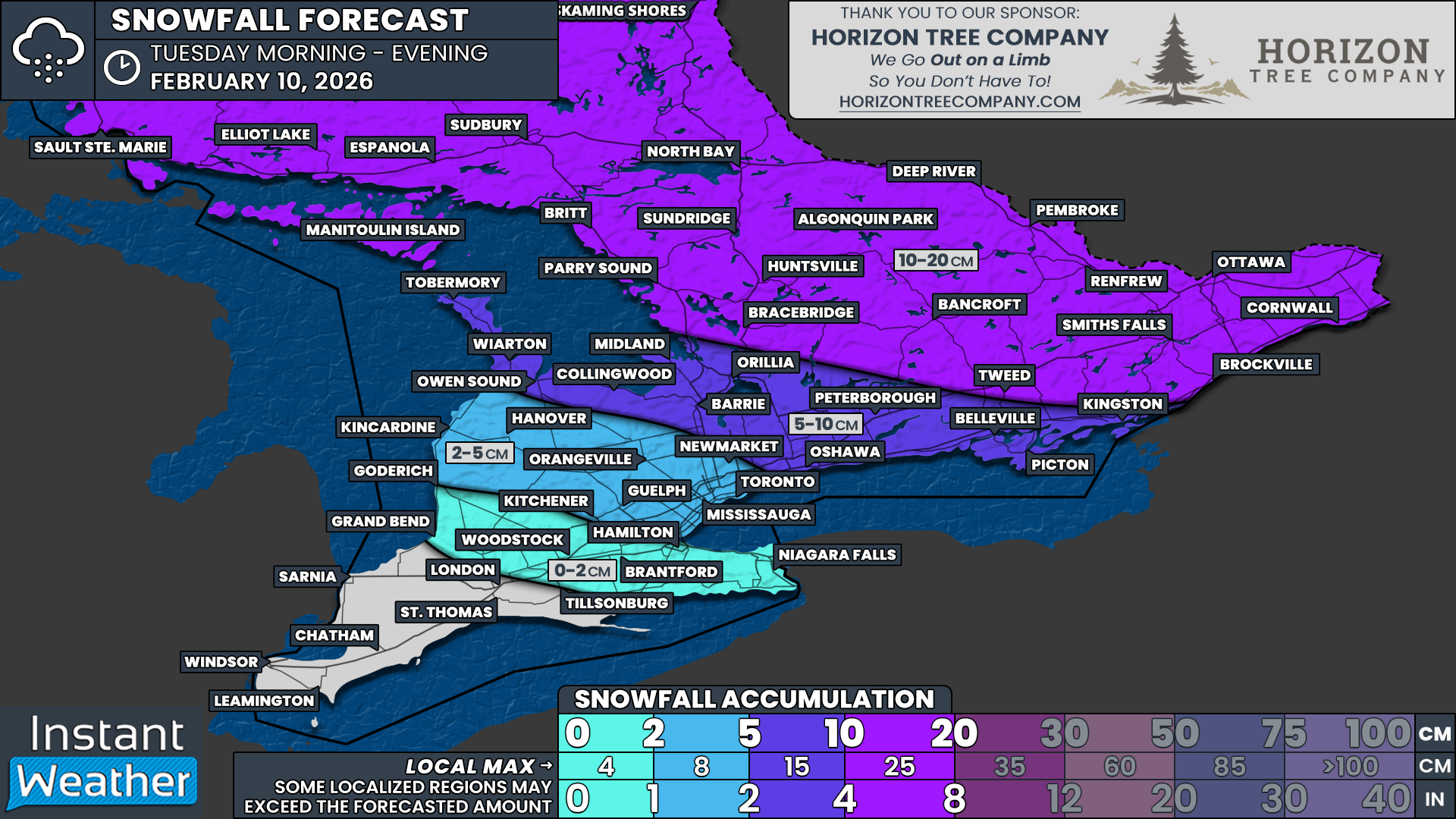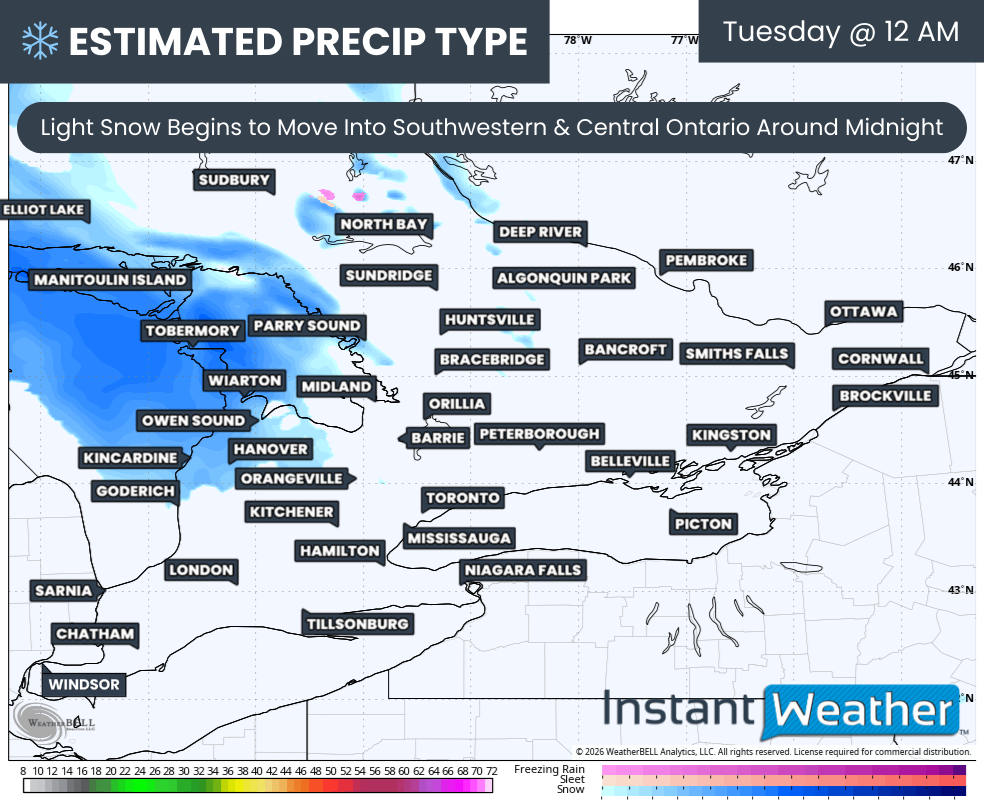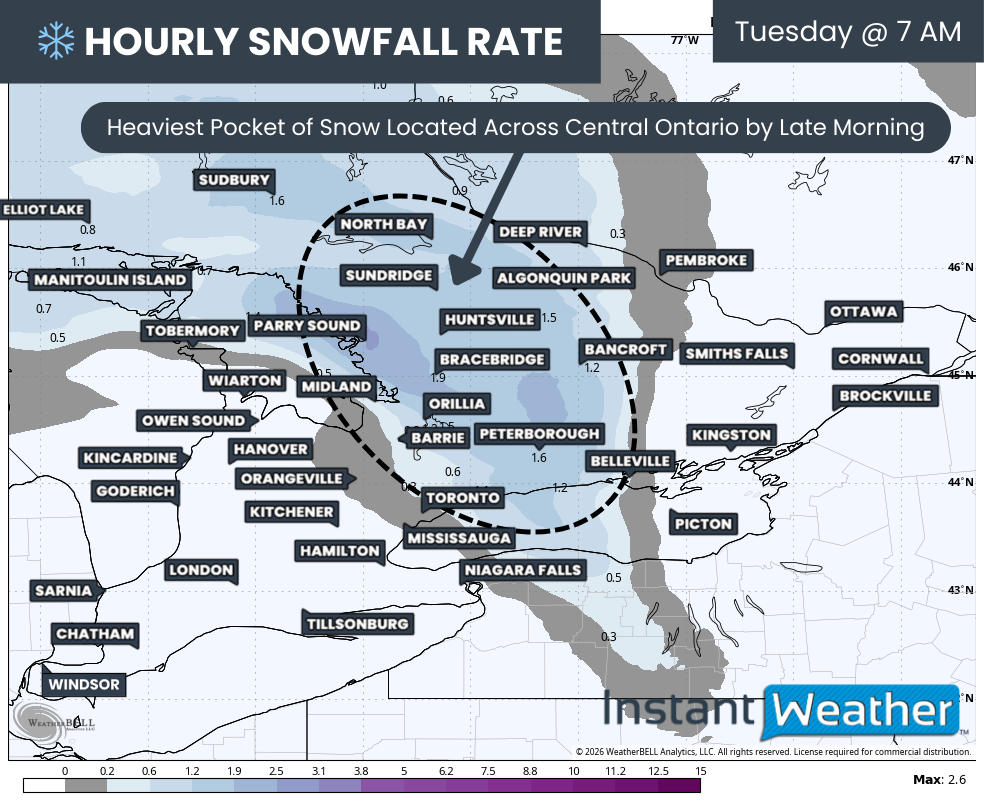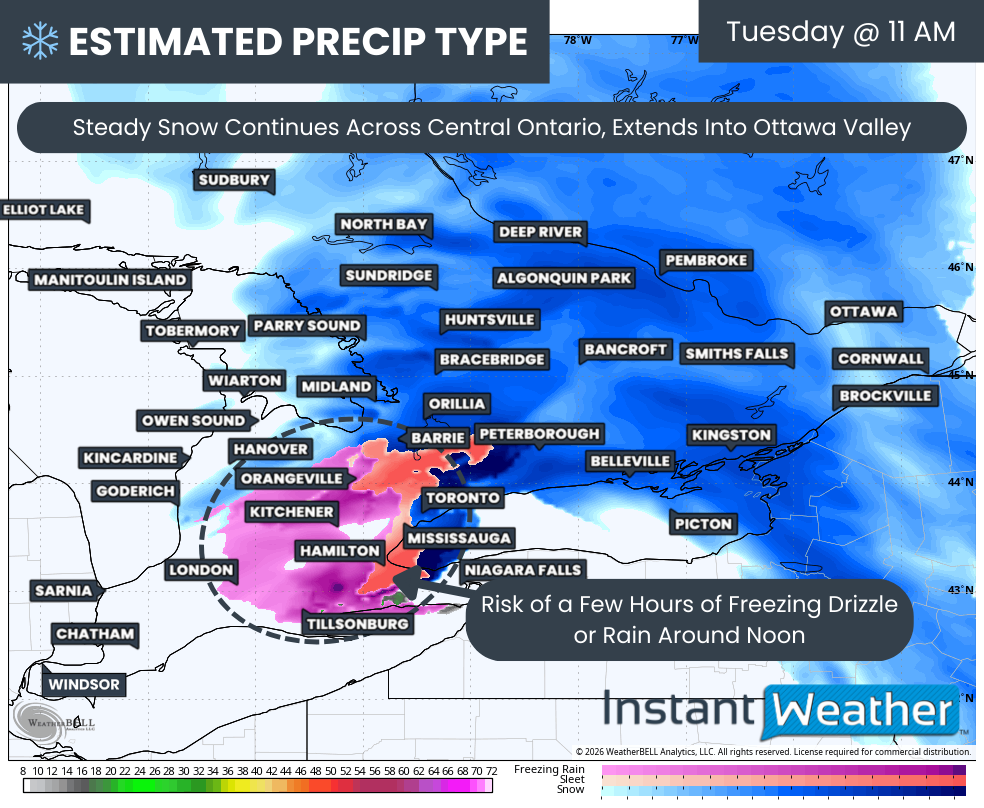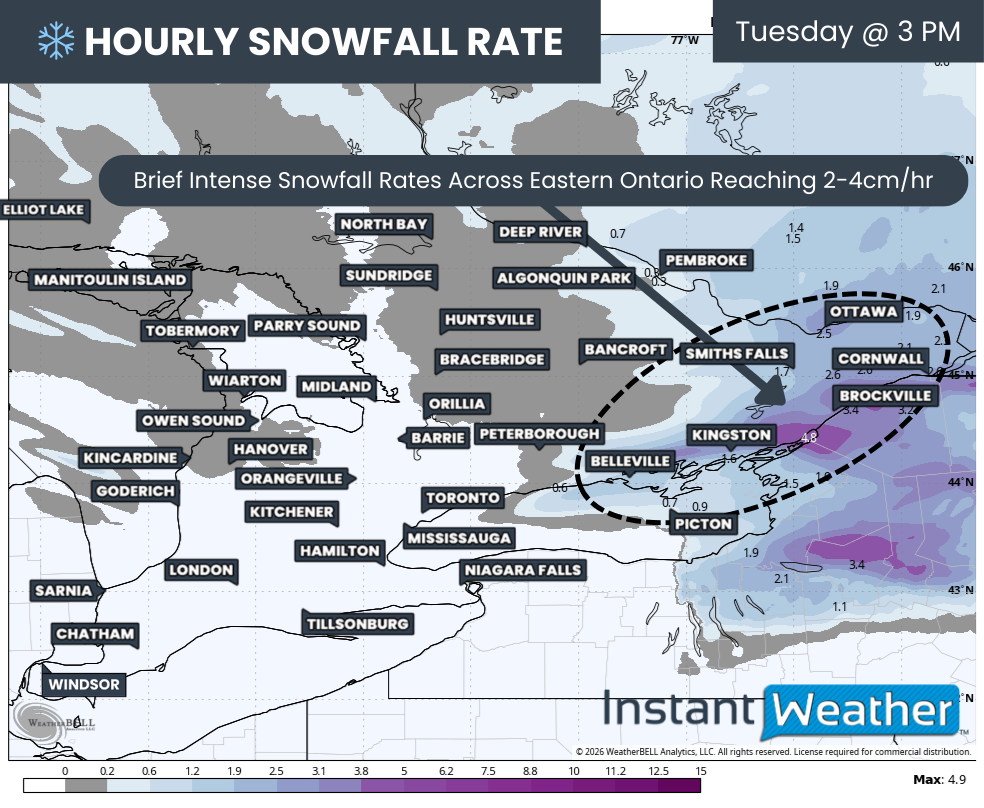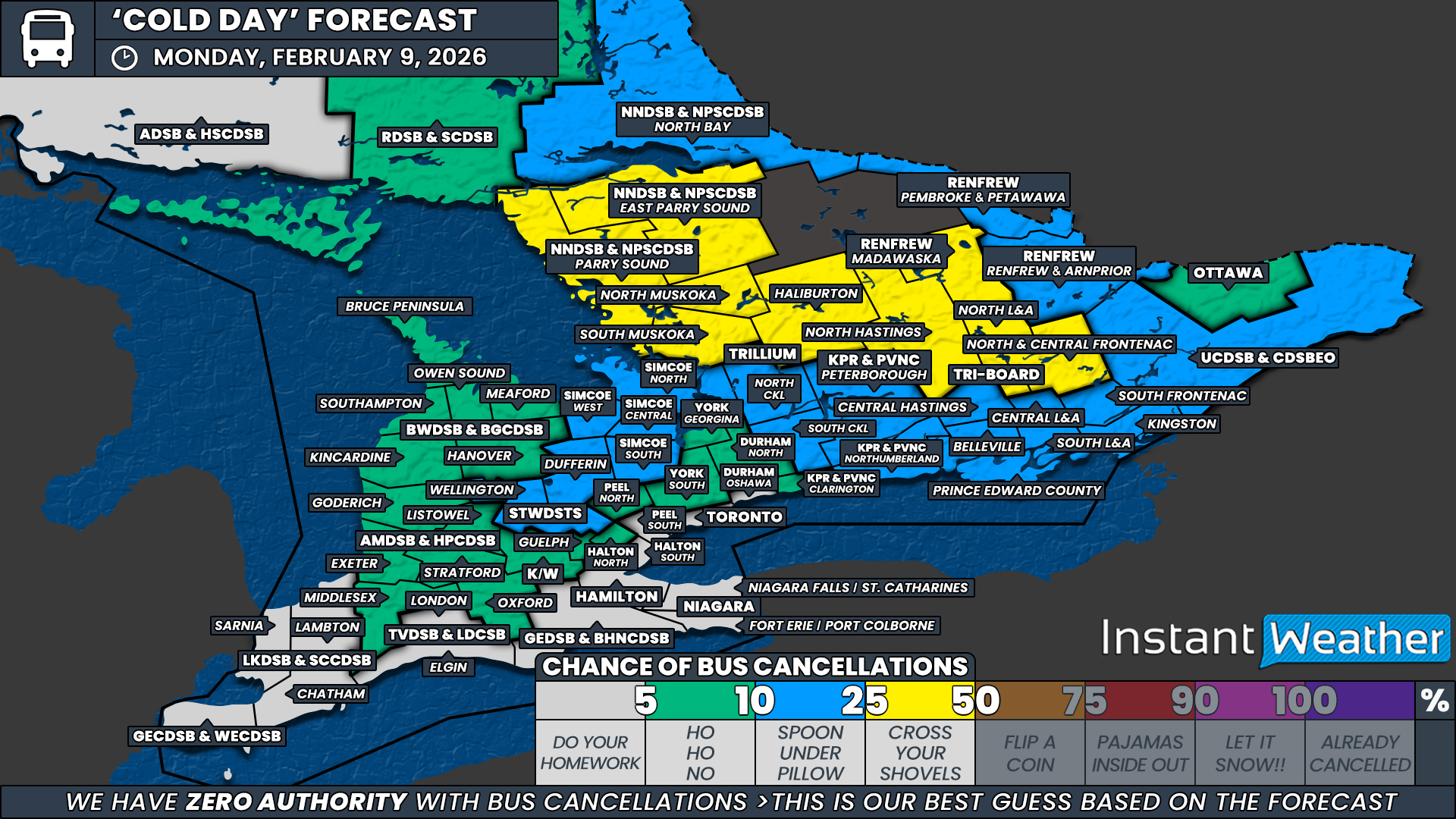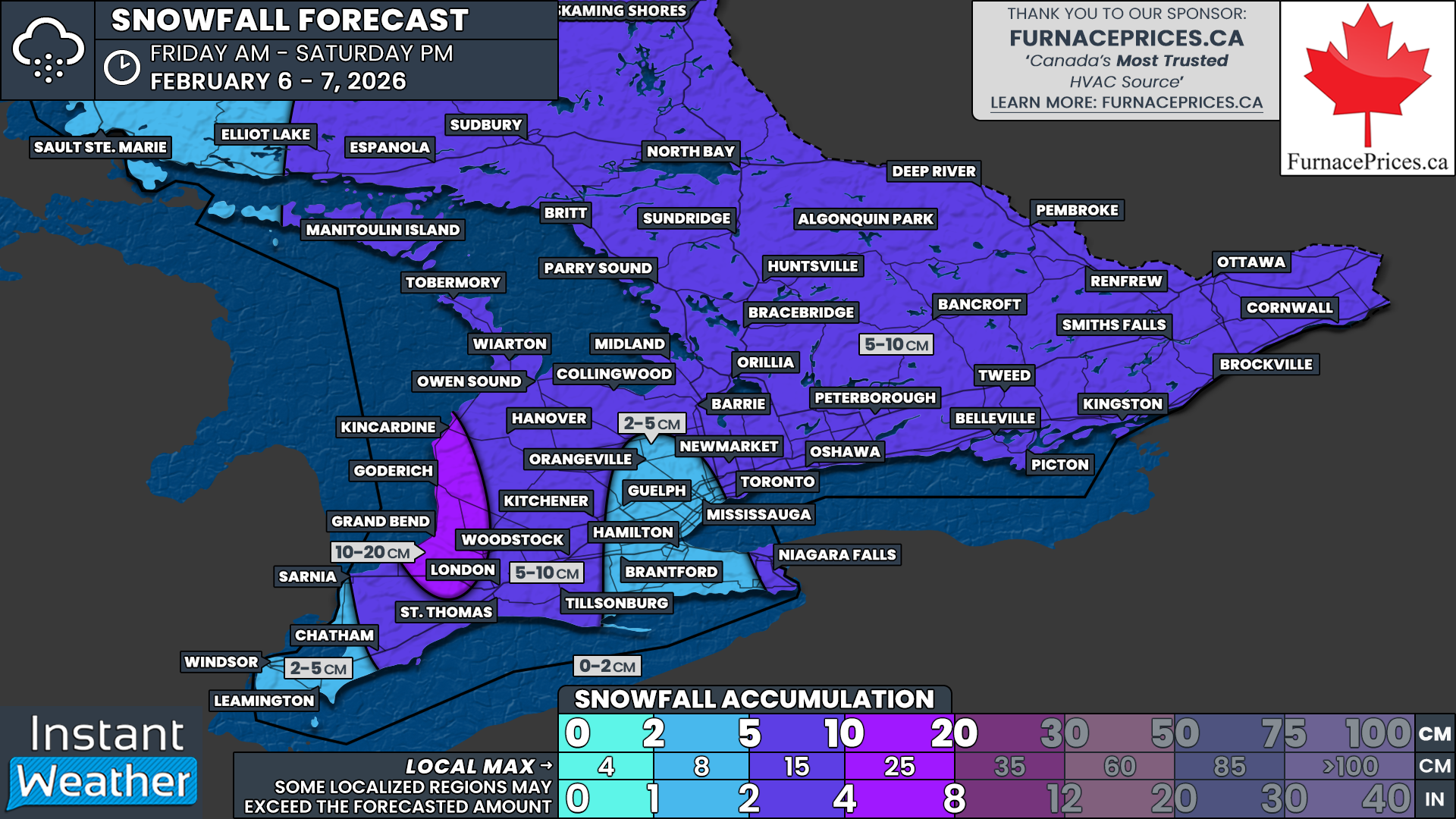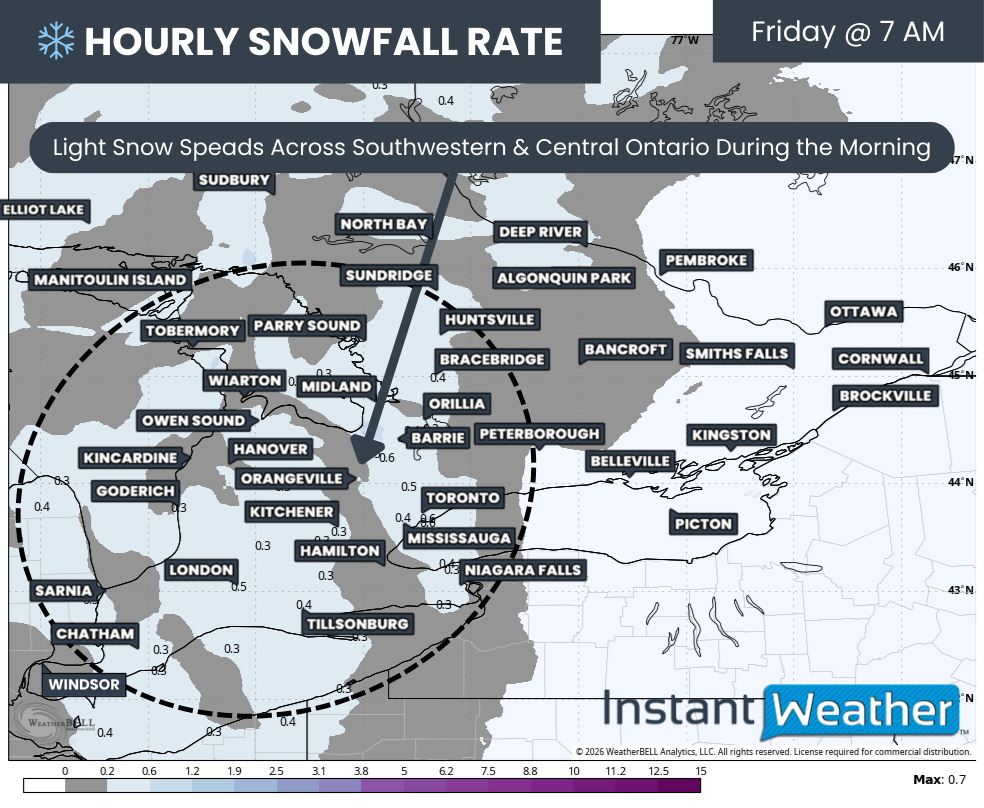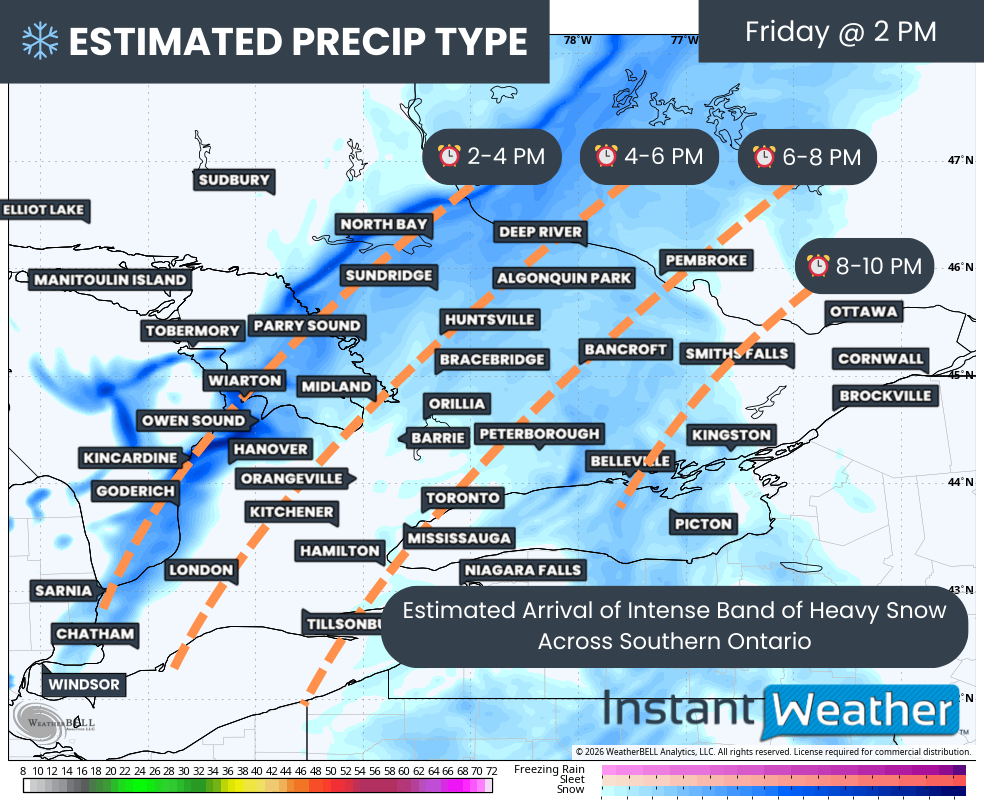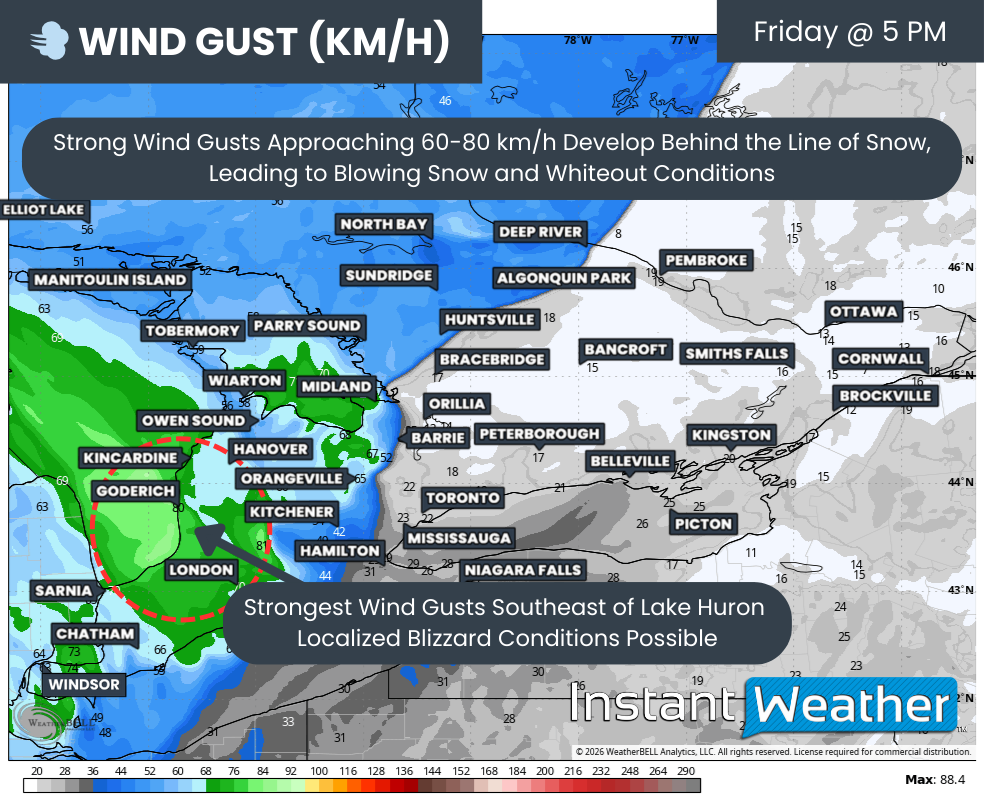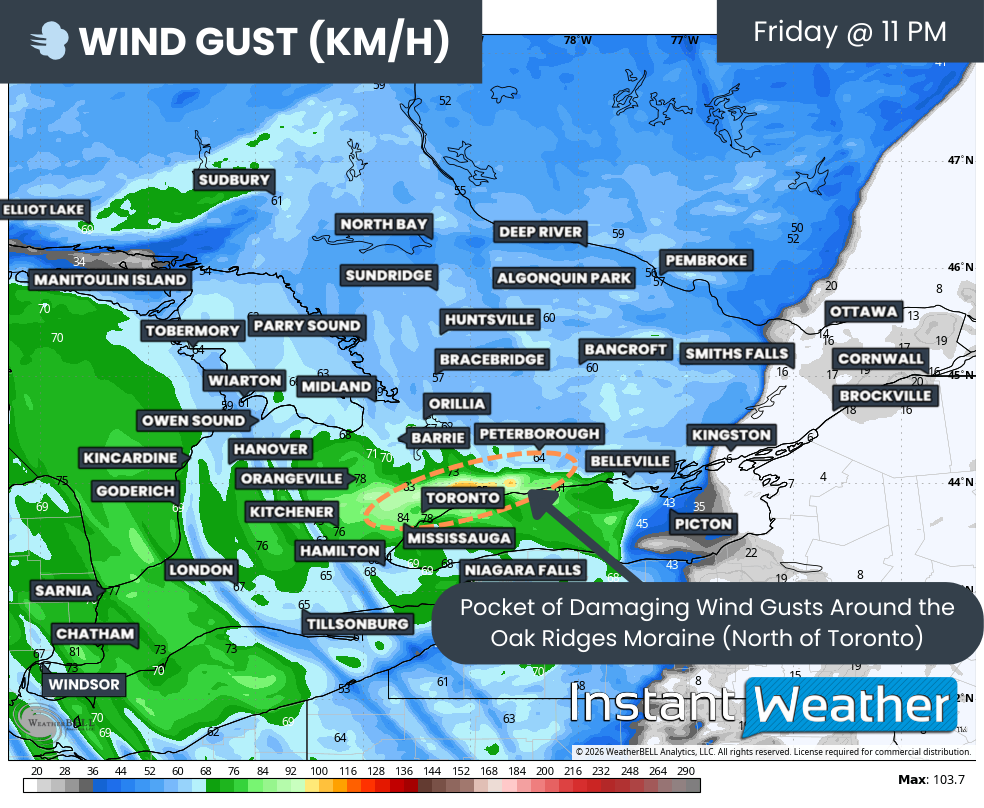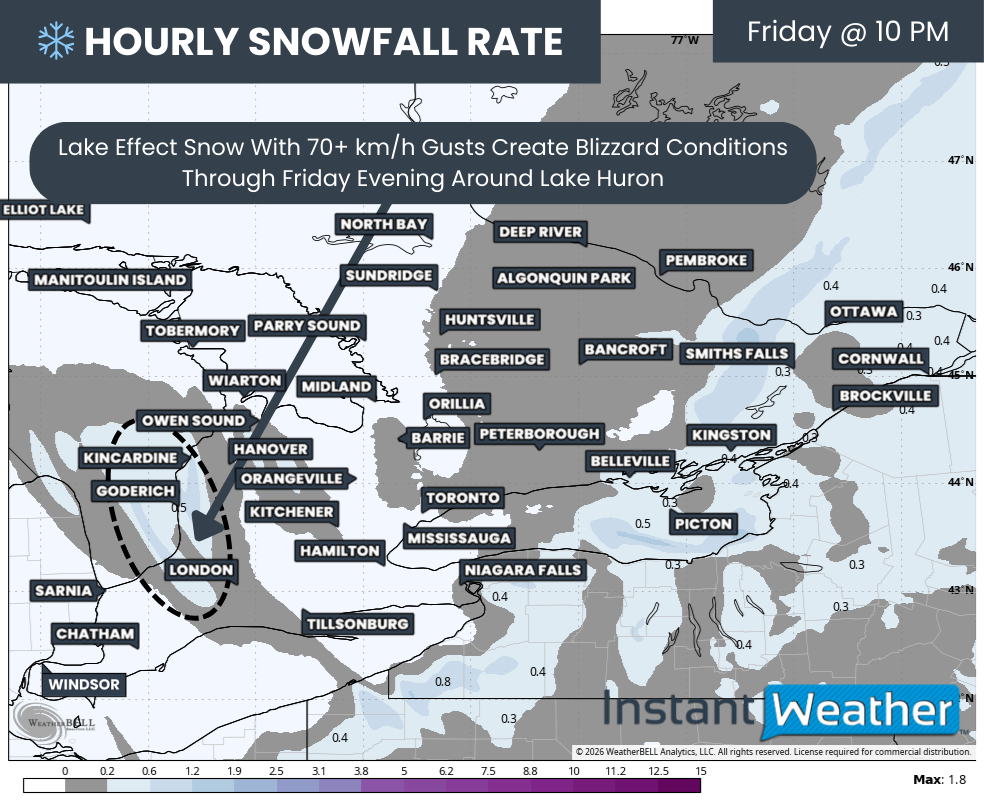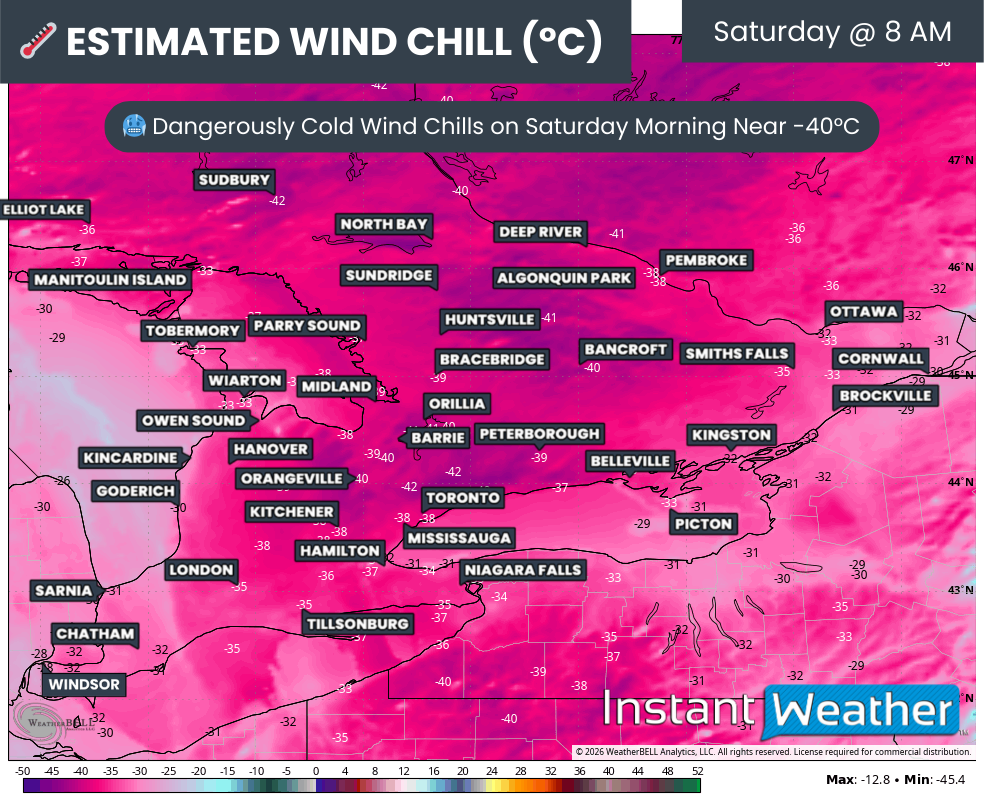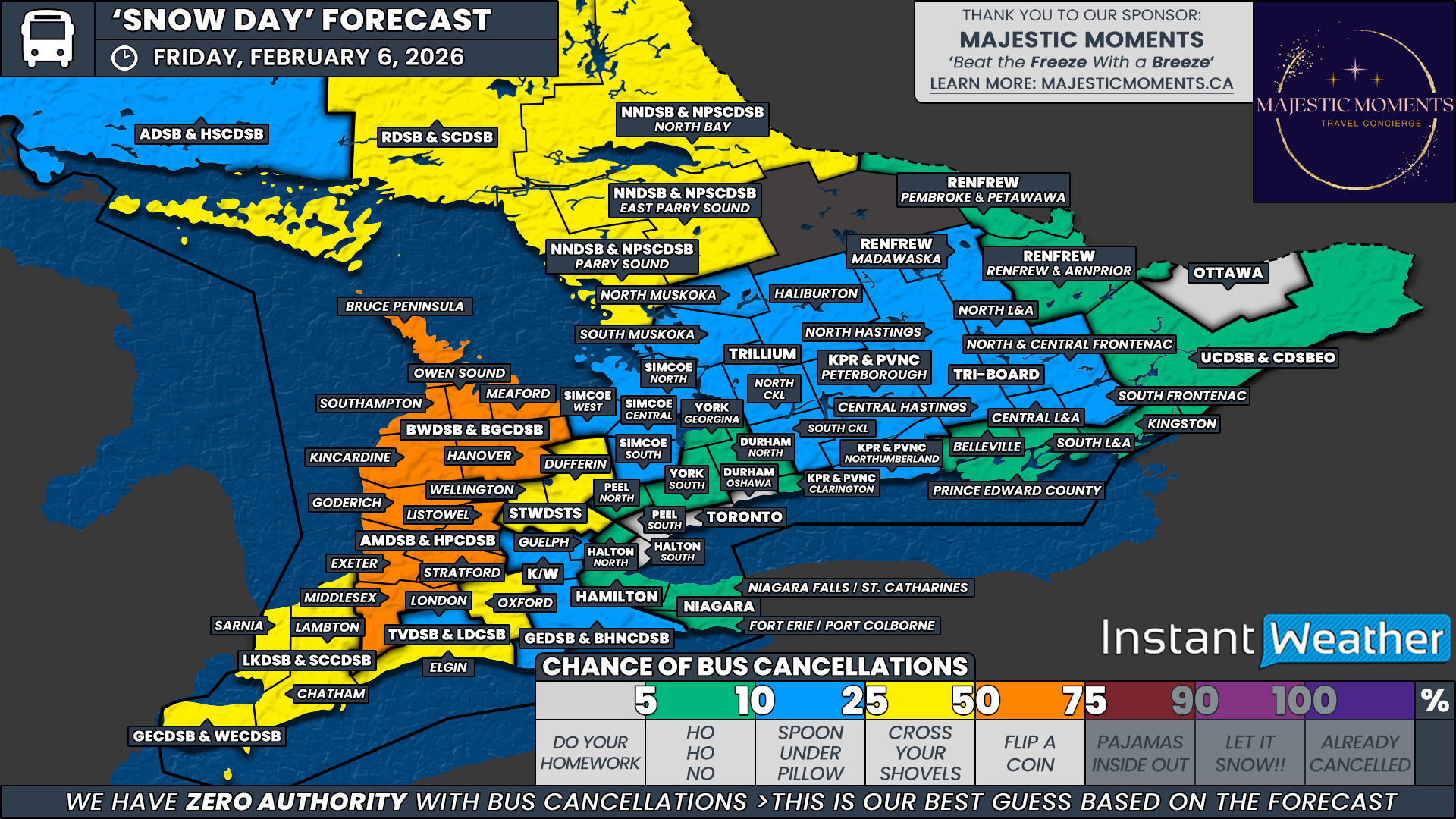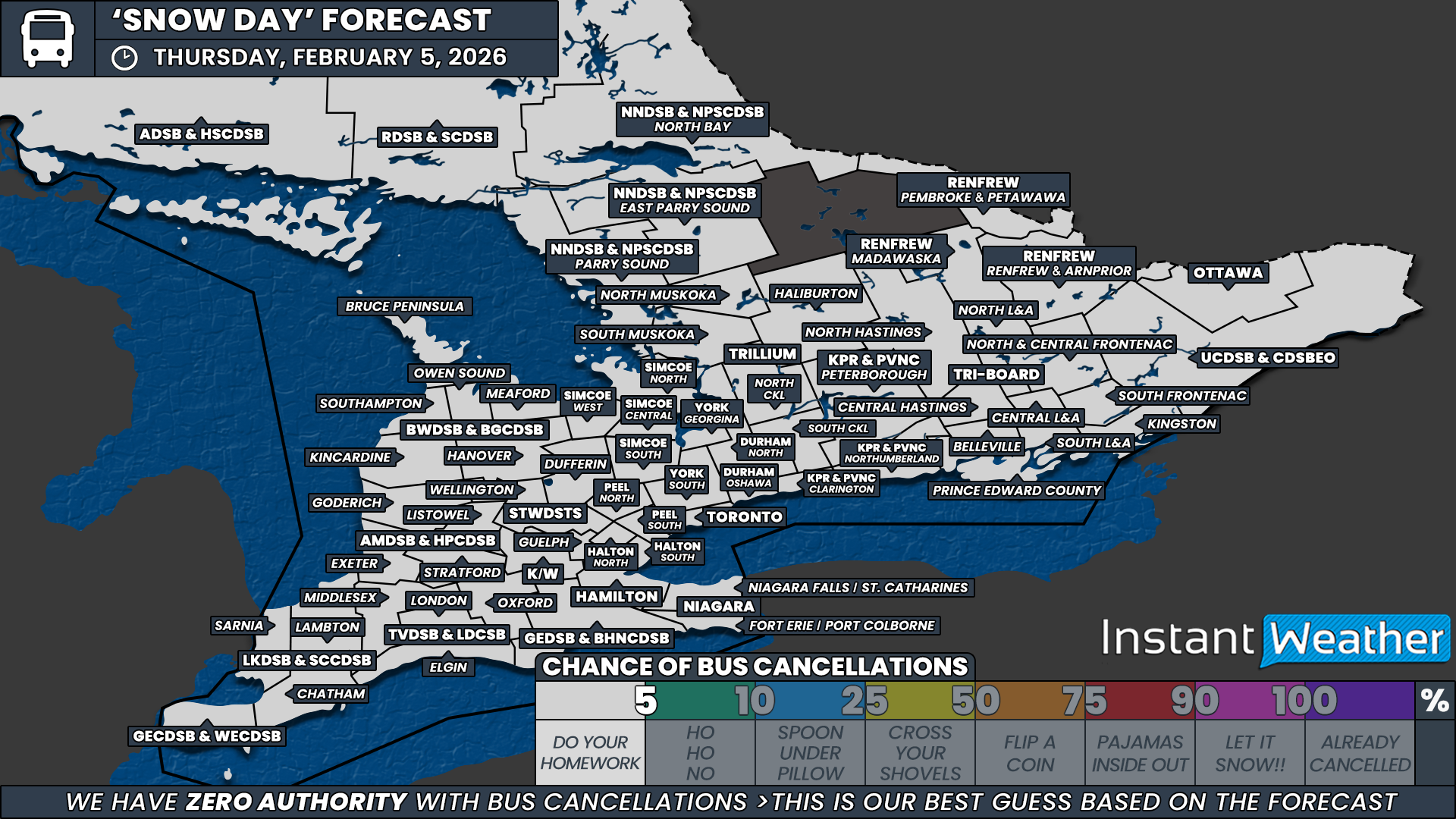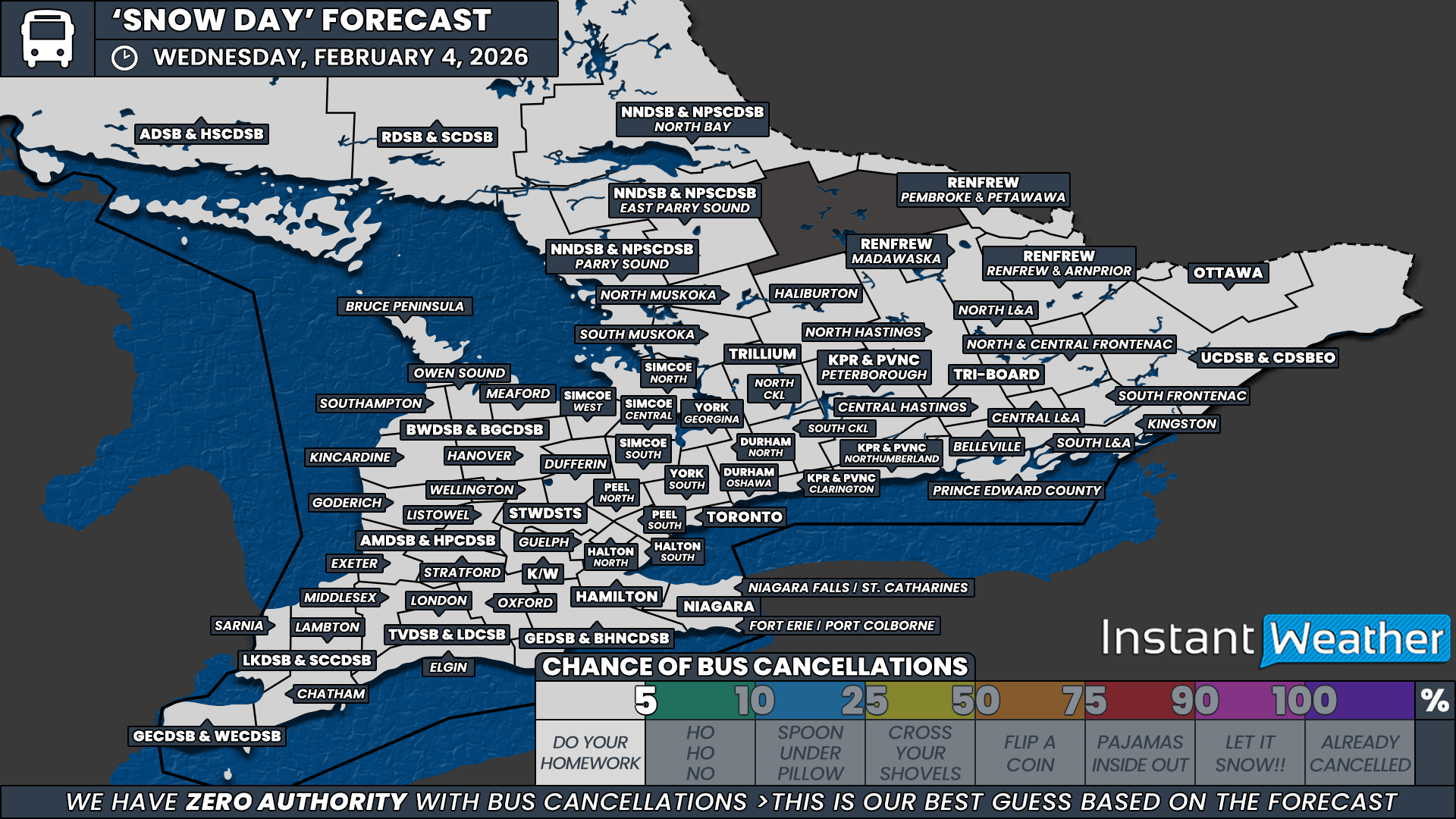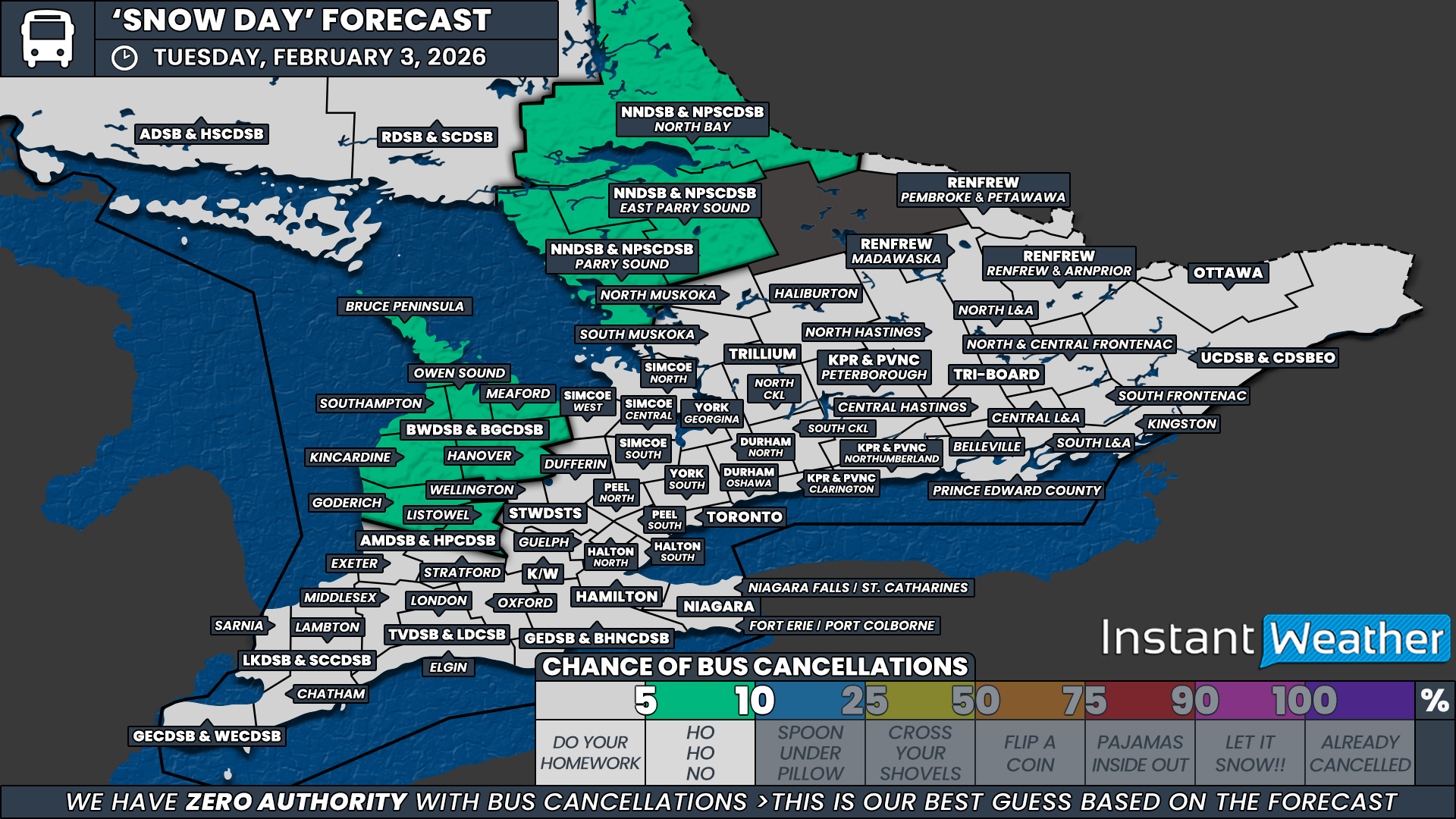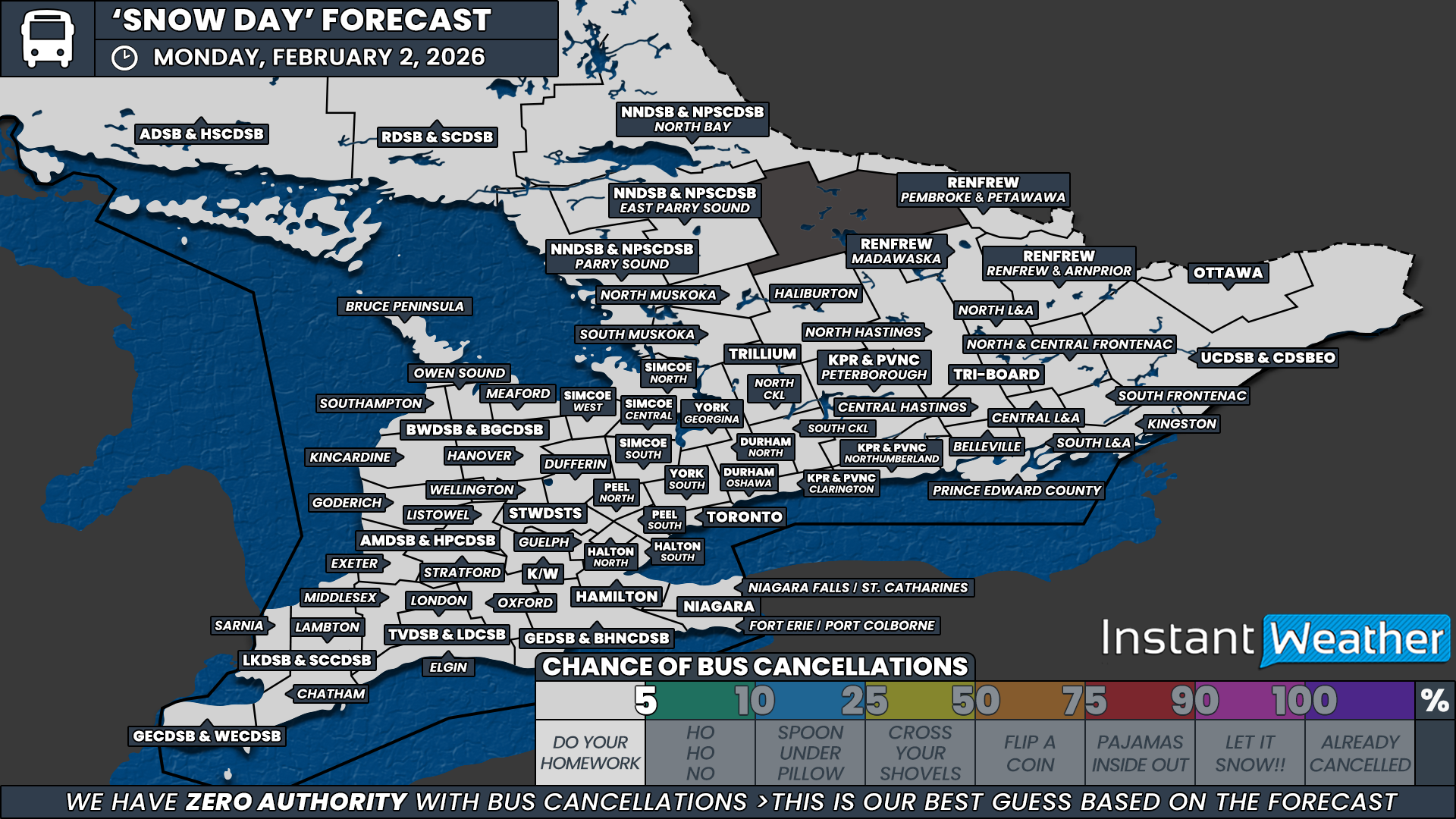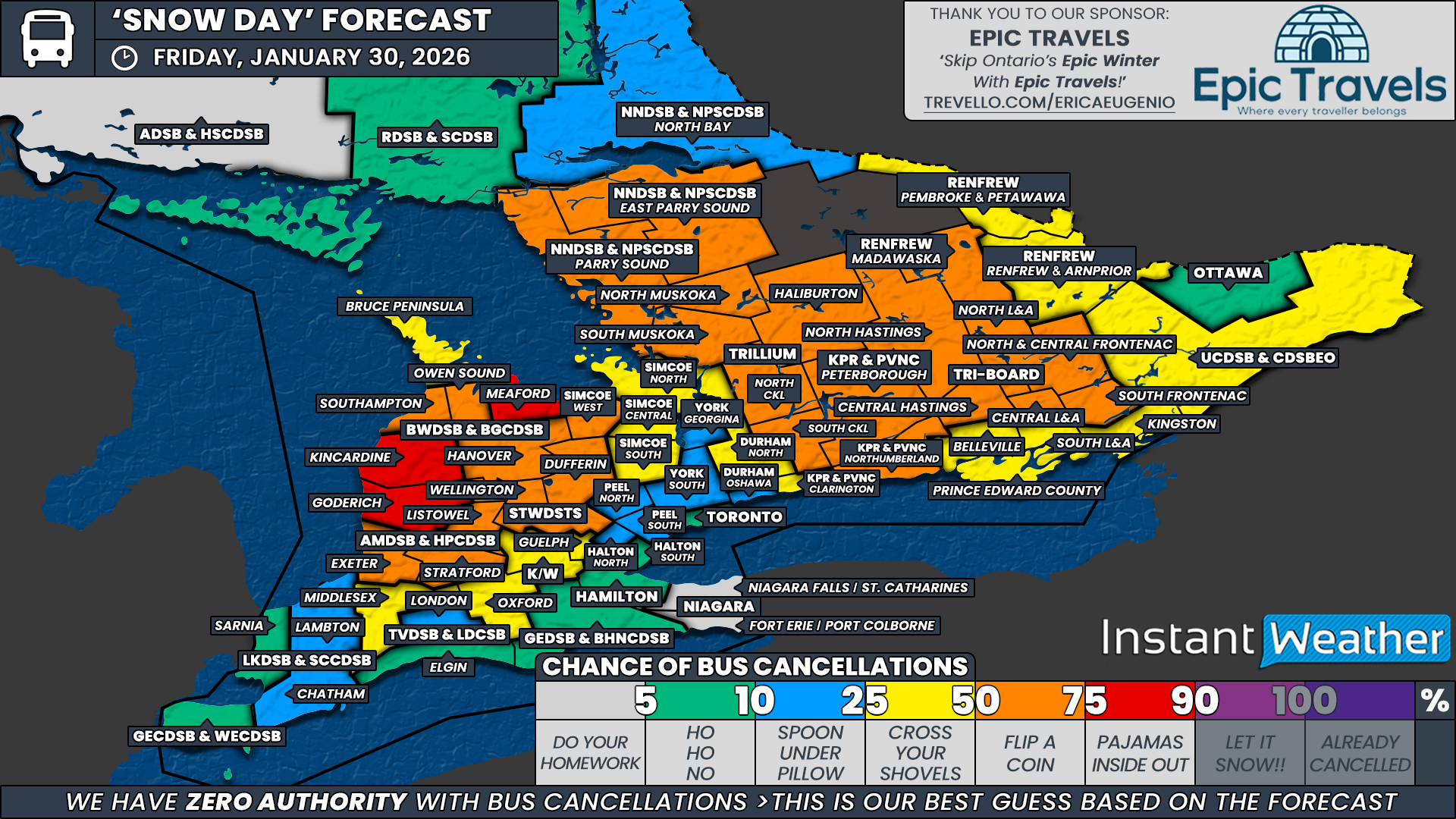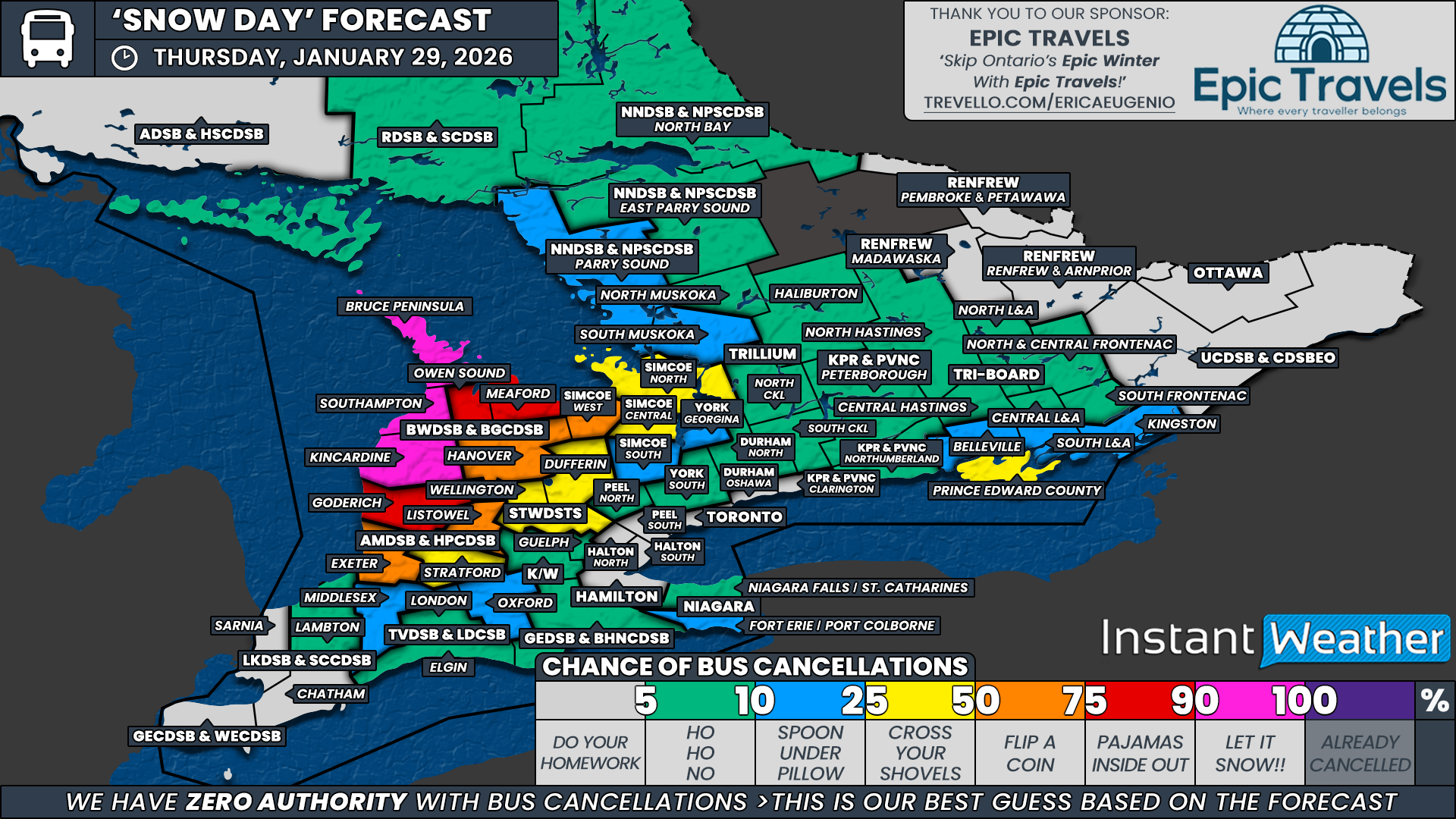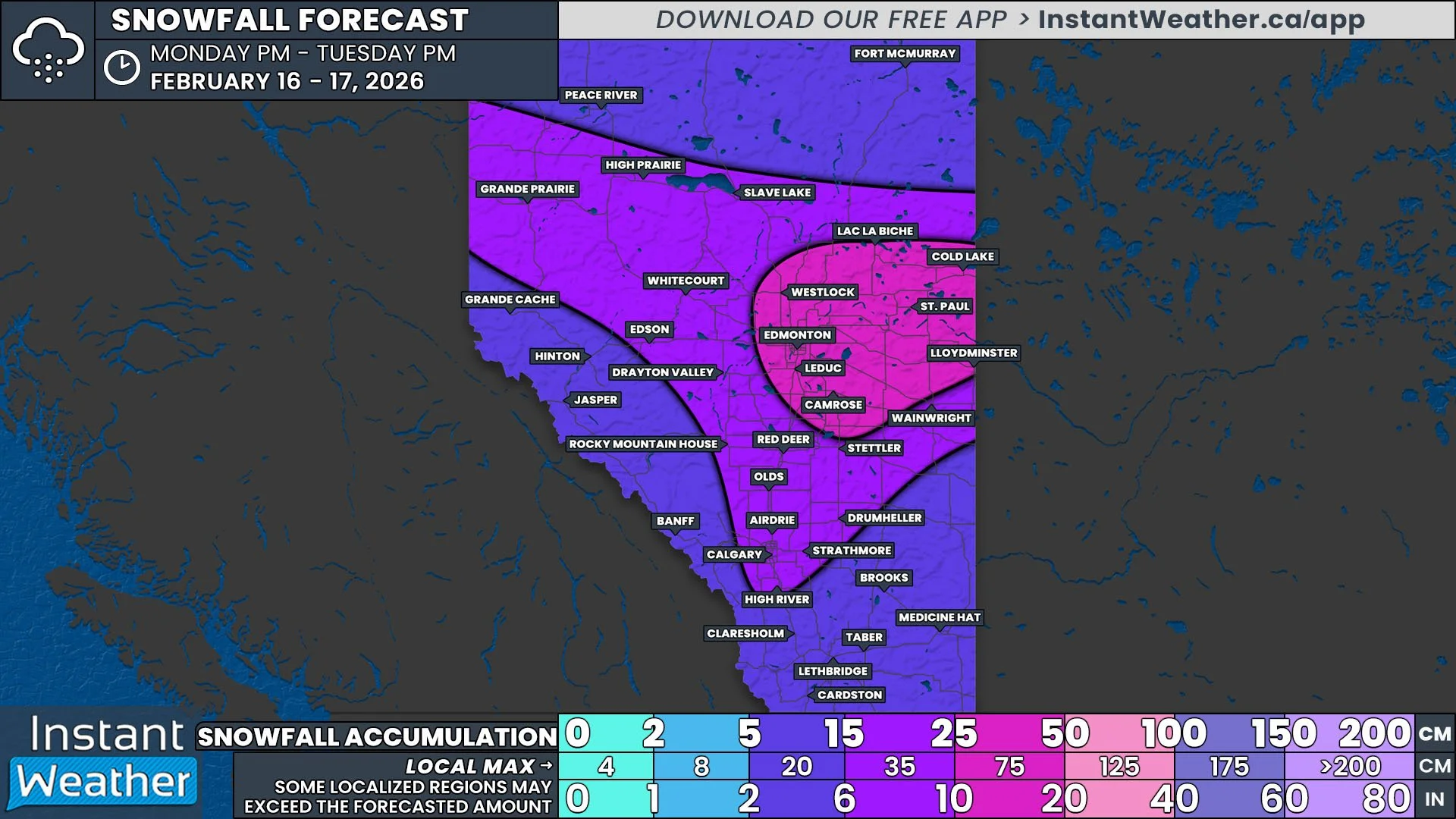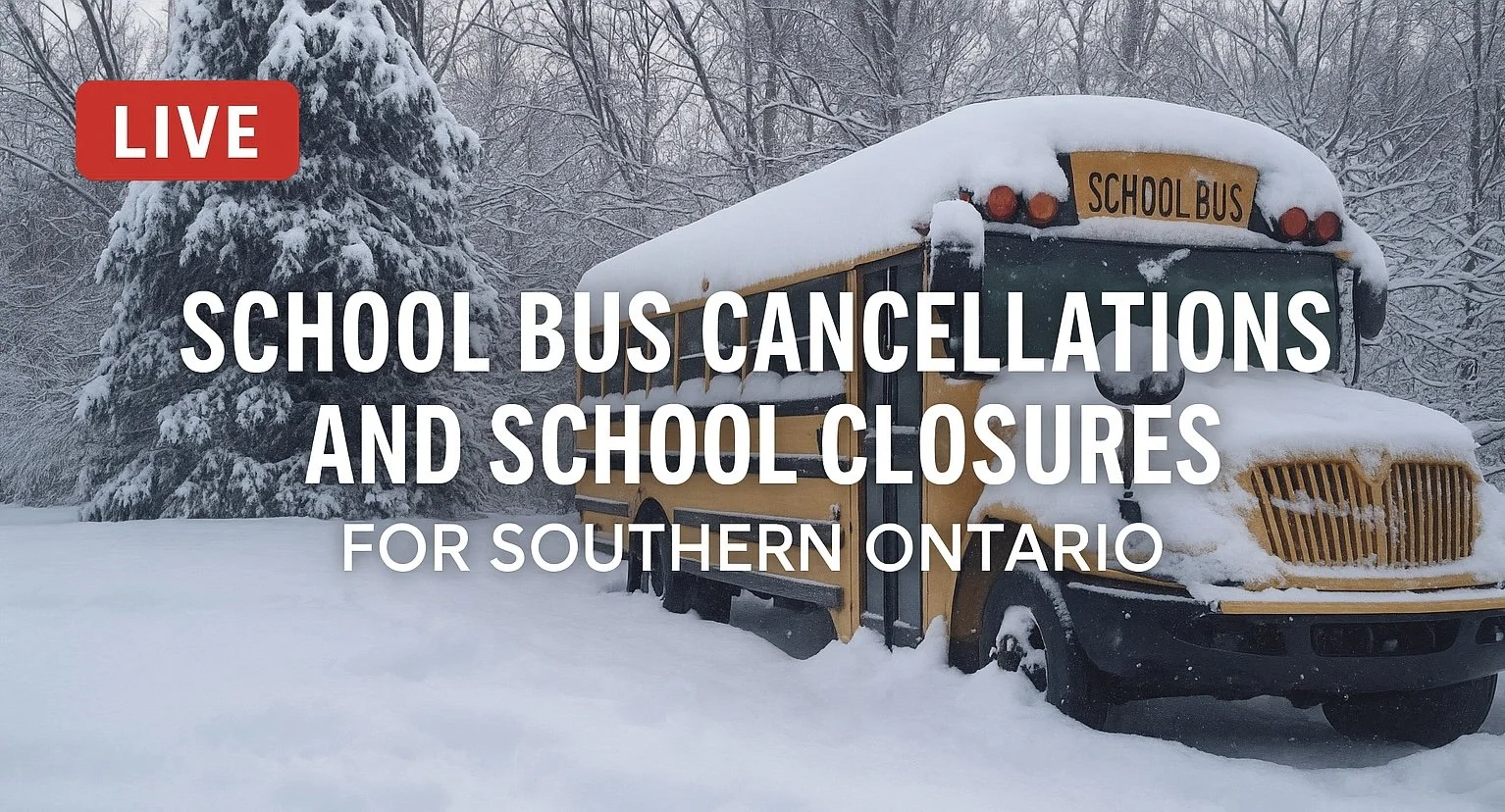‘Snow (Ice/Fog) Day’ Forecast: Freezing Drizzle & Fog May Extend Family Day Weekend for Some Students in Southern Ontario on Tuesday
/Icy conditions are expected to develop across parts of Central and Eastern Ontario late Monday into Tuesday morning as freezing drizzle moves into the region. At the same time, areas of thick fog are forecast to form across parts of Southwestern Ontario, which could locally reduce visibility to near zero in some communities.
This combination of freezing drizzle and fog has the potential to create hazardous travel conditions for the Tuesday morning commute. As a result, we are likely to see at least some school bus cancellations, with the greatest risk focused on Eastern Ontario, where the most widespread icing is expected.
Although Environment Canada has only issued a freezing drizzle advisory for the Ottawa area at this time, the latest forecast data suggests that the freezing drizzle may be more widespread than currently indicated. If that materializes, much of Central and Eastern Ontario could wake up to icy roads, untreated surfaces and slippery rural routes that linger into the morning.
Our highest confidence for cancellations is centred on the more rural school boards of Eastern Ontario. This includes areas covered by the Upper Canada District School Board, the Renfrew County District School Board, including the Madawaska region, and North Hastings, North Lennox and Addington, and North and Central Frontenac under Tri-Board Student Transportation Services.
These areas rely heavily on rural and secondary roads, which are typically the slowest to improve when freezing drizzle develops overnight. We have assigned these regions a 75 percent chance of school bus cancellations. While cancellations appear likely, there is still some uncertainty regarding how widespread and persistent the icing will be, which keeps these boards just below the highest confidence tier.
In the toss-up category, we have Ottawa, where the urban nature of the school board creates more uncertainty about whether freezing drizzle will meet cancellation thresholds. We have also assigned a 50 percent chance to the remaining Tri-Board regions, excluding Prince Edward County, Pembroke under the Renfrew County District School Board, Peterborough County under the Kawartha Pine Ridge District School Board, and Haliburton under the Trillium Lakelands District School Board.
In these areas, the timing of the precipitation is less certain, and some locations may see freezing drizzle taper off earlier in the night, allowing for potential cleanup before morning. Decisions in these regions will likely come down to local road conditions and how quickly crews can respond overnight.
A slight chance, around 25 percent, extends into regions farther west and south of the core freezing drizzle zone. This includes areas covered by the Near North District School Board, Muskoka and Kawartha Lakes under the Trillium Lakelands District School Board, Northumberland County under the Kawartha Pine Ridge District School Board, and Prince Edward County within Tri-Board Student Transportation Services. We are leaning toward buses running in most of these areas, but localized icy patches cannot be ruled out depending on how much freezing drizzle falls and how quickly temperatures stabilize.
Meanwhile, thick fog is expected to develop across portions of Southwestern Ontario overnight into Tuesday morning. In the past, some rural school boards have chosen to cancel buses or implement delays when fog significantly reduces visibility, particularly on exposed country roads.
However, fog can be highly localized and difficult to forecast precisely. Because of that uncertainty, we have capped the highest probability at 25 percent for areas covered by the Avon Maitland District School Board, as well as Oxford, Elgin and Middlesex counties under the Thames Valley District School Board.
Outside of the freezing drizzle and fog risk zones, the chance of school bus cancellations drops to low or very low. At this time, no cancellations are expected across the urban school boards of the Greater Toronto Area.
Disclaimer: Instant Weather has zero authority when it comes to bus and school closures.
It is completely up to the school boards, bus companies, local authorities, and parents to decide what is best for their children. This is our best guess based on our forecast.




